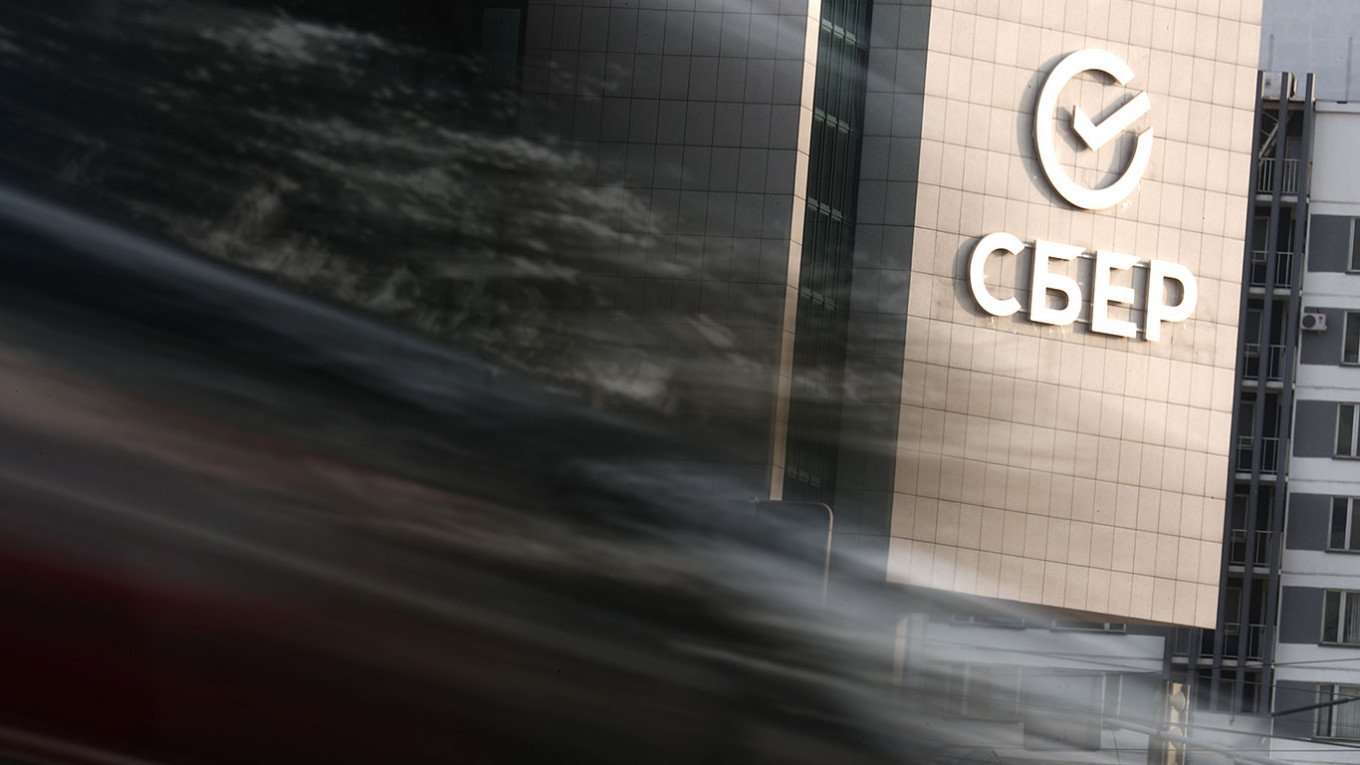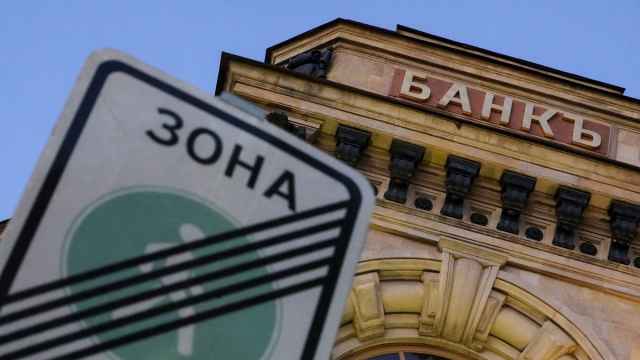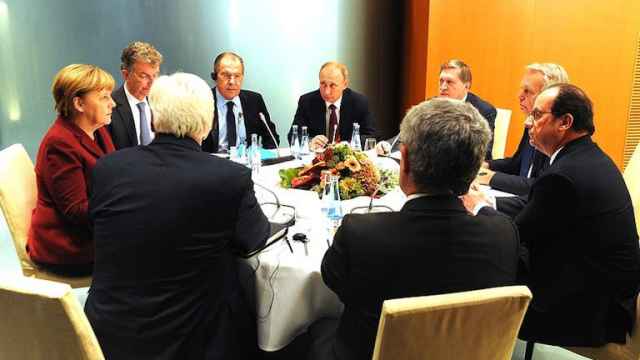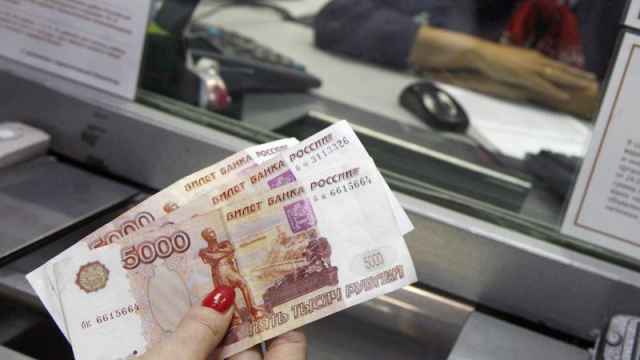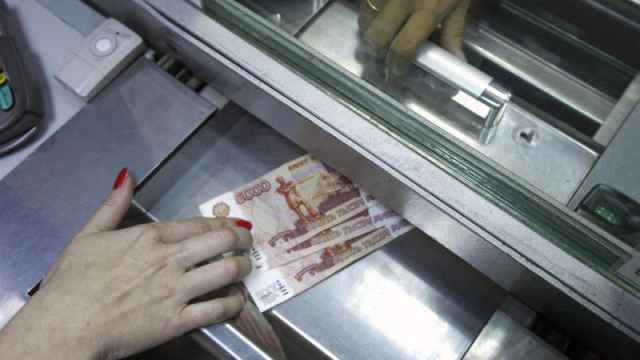The Russian government and the country’s top businesses have spent weeks scrambling to roll out last-ditch protection measures to shield themselves from Western sanctions that could be slapped on Moscow in the event of an escalation over Ukraine.
The Kremlin has staged a series of stress tests to gauge how the country’s key industries would fare should the U.S. impose some of its most potent economic weapons, such as cutting Russian banks out of the international financial system, or banning the sale of U.S.-made technology to Russian companies.
Despite apparent signs of a climbdown from Moscow on Tuesday with the withdrawal of some troops from the Ukrainian border and comments that a diplomatic deal with the U.S. could be struck, the war and sanctions scare has spooked the country’s business community.
“In a way it’s like working with a gun to your head,” said Sergey Khotimskiy, founder and first deputy chairman of Sovcombank, a private Russian lender named in draft U.S. sanctions legislation in January as one of the financial institutions which could be targeted by Washington.
The stress tests focused on the country’s finance sector and electronics industry, as well as key state-owned enterprises such as the postal service, railway network, energy grid and flagship-carrier Aeroflot, according to reports by Russian business outlets The Bell and Kommersant.
Banks, including state-owned goliath Sberbank, were assessed as to how they could function without access to key Western-made corporate software such as Microsoft and SAP, Kommersant reported. Other tests looked at the impact of Russia being kicked off the SWIFT financial messaging system.
None of the companies involved have publicly commented on the results of the exercises. But officials have expressed concern over Russia’s heavy reliance on Western technology — both hardware and software — and state-owned companies’ mixed progress toward President Vladimir Putin’s goal of import substitution.
“The tasks that state-owned companies have set themselves [for import substitution] have not been fulfilled,” said Ilya Massukh, head of the Competence Center for Import Substitution, established by the Russian government to oversee the country’s protectionist drive in the wake of the first round of Western sanctions leveled in 2014.
“Information technology is used to put pressure on states and promote interests. Take Aeroflot, for instance, the most painful blow that could be inflicted against them relates to technology. The planes can be sitting in a Russian airport, but without SAP or Oracle, they won’t take off,” he told the RBC business daily.
Only around a third of the domestic software being used by Russia’s state-owned companies is Russian, Massukh said. That share falls to 10% or less at the likes of Aeroflot, VTB bank and Transneft, which manages Russia’s vast domestic oil pipeline network.
State-run companies and government departments have also come under fire for recent deals struck to buy Western software packages. Transneft, for instance, was banned from signing a $9-million contract with Microsoft last year and the Moscow city government was heavily criticized for striking a smaller deal with Microsoft for some educational software.
The latest showdown with the West has only sharpened the Kremlin’s appetite for import substitution amid such mixed results over the last six years of the campaign.
At a meeting with microchip manufacturers — seen as one of the country’s most vulnerable spots should the U.S. block technology exports to Russia — the government set industry the task of becoming “fully independent” by 2030. Putin himself has backed measures that would hold the heads of state-owned companies personally liable for hitting import substitution targets.
Businesses have also been instructed to consider Chinese, rather than Western, tech and software as an interim measure, The Bell reported, while Russia’s industry is still unable to produce the kinds of microchips and advanced computer software businesses need.
‘Collateral damage’
Sanctions preparations have also extended into the private sector, where concerns about possible implications have combined with mounting frustration at the prospect of being “collateral damage” in a geopolitical standoff.
In an interview with The Moscow Times on Monday, Khotimskiy of Sovcombank said the possibility that the private bank could be sanctioned was “illogical and unfair.”
“The logic of sanctions for many years was that you’re either a bad guy, and you’re being punished for being a bad guy, or you’re state-owned and then it’s something political between states. We never saw in the past that a privately owned institution is being punished just because it’s in the top 10,” he said, speaking in an interview at Sovcombank’s headquarters in Moscow’s financial district.
Sovcombank is one of Russia’s largest gold and precious metals traders with Western institutions, and also services the Russian pension programs of around 50 international companies — leaving them exposed to any sanctions that target them specifically or Russia’s wider financial system.
Though the initial response from trading partners abroad has been encouraging — “our U.S. and European banking partners are not bothered by it, they’re not cutting limits, they’re saying 'don’t worry about it, let’s continue working,' you won’t be punished,” said Khotimskiy — the lender is not ignoring the threat, upping its efforts to educate Western policymakers about them and their ESG credentials.
Critics of the Kremlin in Russia and abroad have for years urged Western governments to target not only state-owned companies, but also the country’s largest private firms.
But analysts are skeptical as to whether sanctions would be extended to parts of the private sector with no direct connection to Russia’s foreign policy moves, as it could trigger legal challenges.
“It’s a problem, because then you need to discuss it with all the partners and the investors — so in a way that’s already a punishment,” said Khotimskiy.
“Of course, we feel it’s absolutely unfair, because I don’t think that the people who work in the bank should be punished for whatever the relations are between the countries.”
A Message from The Moscow Times:
Dear readers,
We are facing unprecedented challenges. Russia's Prosecutor General's Office has designated The Moscow Times as an "undesirable" organization, criminalizing our work and putting our staff at risk of prosecution. This follows our earlier unjust labeling as a "foreign agent."
These actions are direct attempts to silence independent journalism in Russia. The authorities claim our work "discredits the decisions of the Russian leadership." We see things differently: we strive to provide accurate, unbiased reporting on Russia.
We, the journalists of The Moscow Times, refuse to be silenced. But to continue our work, we need your help.
Your support, no matter how small, makes a world of difference. If you can, please support us monthly starting from just $2. It's quick to set up, and every contribution makes a significant impact.
By supporting The Moscow Times, you're defending open, independent journalism in the face of repression. Thank you for standing with us.
Remind me later.



